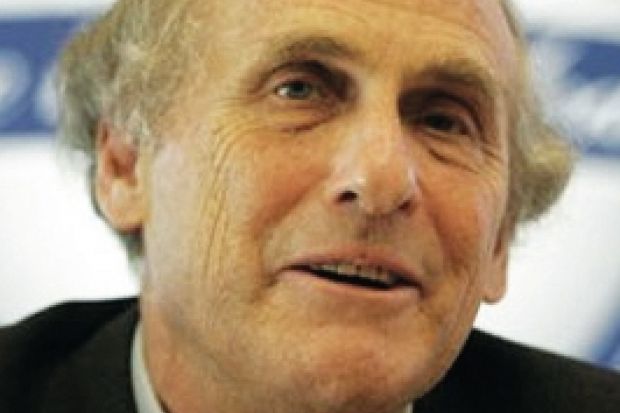When Ralph Steinman was diagnosed with pancreatic cancer, his doctors were in the unusual position of being able to use their patient's research to prolong his life.
Professor Steinman, who was named this week as one of three scientists to share the Nobel Prize in Physiology or Medicine 2011, was born in Montreal, Canada on 14 January 1943.
He studied for his undergraduate degree at McGill University and then moved to the US to complete his medical training at Harvard Medical School. He graduated in 1968, and went on to complete an internship and residency at Massachusetts General Hospital.
In 1970, Professor Steinman joined Rockefeller University in New York as postdoctoral Fellow in the Laboratory of Cellular Physiology and Immunology. He was promoted to assistant professor in 1972, associate professor in 1976 and was made a full professor in 1988.
In 1995, he was named Henry G. Kunkel professor and he went on to become director of the Christopher Browne Center for Immunology and Immune Diseases in 1998.
Professor Steinman's research with the late Zanvil A. Cohn at Rockefeller led to the discovery of the importance of dendritic cells in the immune system. The citation from the Nobel Foundation says of his research: "Ralph Steinman discovered the dendritic cells of the immune system and their unique capacity to activate and regulate adaptive immunity, the later stage of the immune response during which microorganisms are cleared from the body."
The importance of Professor Steinman's work has been marked by an array of prizes. He received the Gairdner Foundation International Award in 2003, the Novartis Prize in Immunology and the New York City Mayor's Award for Excellence in Science and Technology in 2004 and the Debrecen Prize in Molecular Medicine in 2006.
More recently, he was recognised with the Albert Lasker Basic Medical Research Award in 2007, the Albany Medical Center Prize in Medicine and Biomedical Research in 2009 and the A.H. Heineken Prize for Medicine in 2010.
Marc Tessier-Lavigne, president of Rockefeller, said the news of Professor Steinman's Nobel win, which came on 3 October just three days after he died, was "bittersweet".
"Ralph's research has laid the foundation for numerous discoveries in the important field of immunology, and it has led to innovative approaches in how we treat cancer, infectious diseases and disorders of the immune system," he said.
In a tribute, Professor Steinman's daughter Alexis said that the family was "so touched" by the news of the Nobel prize. "He devoted his life to his work and his family, and he would be truly honoured," she said.
Professor Steinman died on 30 September. He is survived by his wife and children.
Register to continue
Why register?
- Registration is free and only takes a moment
- Once registered, you can read 3 articles a month
- Sign up for our newsletter
Subscribe
Or subscribe for unlimited access to:
- Unlimited access to news, views, insights & reviews
- Digital editions
- Digital access to THE’s university and college rankings analysis
Already registered or a current subscriber? Login
